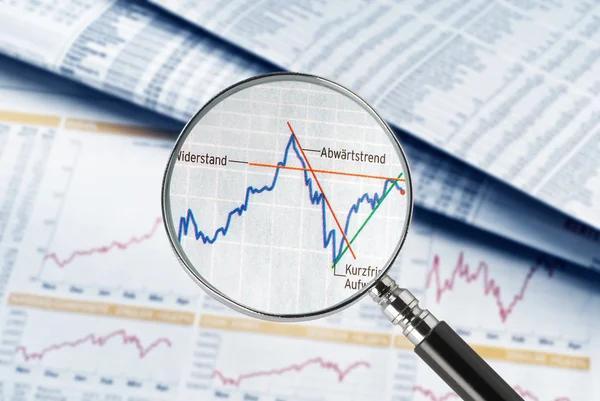American stock indices fell sharply at the end of trading on Wednesday, the Nasdaq Composite fell by 3.6%, showing the worst dynamics since October 2022. The S&P 500 fell 2.3%, the sharpest since December 2022, Market Watch notes.

< p style="text-align: center;">►Read the Ministry of Finance on Instagram: the main news about investments and finance
Reason for the Fall
The market collapse was triggered by the quarterly results of Tesla Inc. and Alphabet Inc., which did not reach the “high bar” set by Wall Street analysts, writes Market Watch.
These are the first two companies from the so-called “magnificent seven” of American IT giants that published reports for the past quarter.
Tesla shares fell in price by 12.3% at the end of trading, the most since September 2020, according to Dow Jones. The American manufacturer of electric vehicles increased revenue in the second quarter by 2%, to a record $25.5 billion, but its net profit decreased by 45%, and profit excluding one-time factors ($0.52 per share) was significantly worse than the consensus forecast of experts polled by FactSet ($0.61 per share).
Read: Tesla Posts Worst Earnings in Five Years
Alphabet Inc. stock price decreased by 5%. The company's net profit and revenue in the last quarter exceeded market forecasts, but advertising revenue growth fell short of expectations. In addition, traders reacted negatively to Alphabet's increased investment, Barron's notes.
Share prices of other Magnificent Seven companies also fell sharply, including Nvidia Corp. – by 6.8%, Meta Platforms Inc. – by 5.6%, Microsoft Corp. – by 3.6%, Amazon.com Inc. – by 3%, Apple Inc. – by 2.9%.
Securities of American technology companies began to fall sharply in price after the publication of statistical data on July 11, showing a significant slowdown in inflation in the United States. The decline in inflation pressures has increased traders' confidence that the Federal Reserve will soon begin easing monetary policy. Experts believe that the first rate cut by the American Central Bank will occur in September.
In these conditions, traders began to sell securities of IT giants that had risen significantly in price in recent months, fixing profits and freeing up funds to buy shares of companies that, in their opinion, would benefit most from the easing of Fed policy. The Magnificent Seven companies have lost more than $1.7 trillion in capitalization since the publication of June inflation data, Market Watch notes.
“Rotational trading in the stock market continues,” notes Freedom Capital Markets analyst Jay Woods. — Trading volatility is increasing.”
Statistics published on Wednesday showed an unexpected decline in new home sales in the United States last month.
Sales of new homes in the country in June decreased by 0.6% compared to the previous month and amounted to 617 thousand at an annual rate, the country's Ministry of Commerce reported. According to revised data, 621 thousand new buildings were sold in May, and not 619 thousand, as previously reported. Analysts on average expected sales to increase last month to 640 thousand from the previously announced May level, according to Trading Economics.
Papers Visa Inc. fell in price by 4% based on trading results. The operator of the largest payment system in the United States increased net profit in the third fiscal quarter by 17%, revenue by 10%, while the latter figure turned out to be worse than market forecasts.
The stock quotes of electric vehicle manufacturers fell following Tesla shares. Capitalization of Rivian Automotive Inc. fell by 7%, Lucid Group Inc. – by 5.6%, ADR Nio Inc. and XPeng Inc. lost 4% and 4.2% in price, respectively.
AT&T Inc. increased in price by 5.2%. The telecommunications company recorded a 20% decline in net profit in the second quarter, with a slight decline in revenue. At the same time, the growth rate of the number of subscribers of tariff plans with payment for services significantly exceeded analysts’ expectations.
The Dow Jones Industrial Average index, as of market close on Wednesday, decreased by 504.22 points (1.25%) and was 39,853.87 points.
Standard & Poor's 500 fell by 128.61 points (2.31%) to 5,427.13 points.
Nasdaq Composite collapsed by 654.94 points (3.64%) and amounted to 17342.41 points.
- US Stock Market

